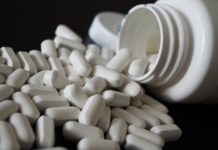ataxia (difficulty standing and walking), interference with short-term memory and the perception of fear and paranoia.
The death rate for ibogaine treatment is currently one in 300, but it’s important to note that this is likely an underestimation because of the illegal nature of the treatment in the United States.
American research history
“In the early 1990s, anecdotal evidence suggested that ibogaine might be a potential ‘interrupter’ for opiate, cocaine, and other types of drug addiction,” according the National Institute of Drug Abuse (NIDA). “Some research on lab animals had shown that ibogaine could reduce drug administration of cocaine and opiate drugs.”
Based on the research, NIDA began an ibogaine development project in 1991. The project’s objective was to determine whether NIDA’s Medications Development Program should fund its own clinical development program with ibogaine.
“In 1995, after funding preclinical studies and summarizing the human experience to date, NIDA asked an independent consulting group (comprised of non-governmental members with substance abuse research expertise and pharmaceutical industry experience) to advise on the merits of pursuing a directed clinical program,” NIDA stated. “Preclinical pharmacology, toxicology, pharmacokinetics, human efficacy and safety (including discussions of deaths associated with administration of ibogaine) were summarized by a group of experts from the academic community.”
Some members of the consultant group endorsed the development project, but most of them did not. NIDA decided not to continue the ibogaine development program.
The Verdict
It’s difficult to determine ibogaine’s effectiveness during drug detoxification because of the lack of research, but it’s better to err on the side of caution.
Some current studies provide evidence of the treatment’s positive effects. However, the effectiveness is typically reported by participants, which should not be considered as objective data. Through clinical trials, ibogaine could show its safety and efficacy. But more expansive clinical trials could also reinforce its serious side effects negating its positive, anecdotal findings.
Ibogaine treatment should never be considered without medical supervision, and a thorough medical evaluation should be conducted prior to any consideration. This will ensure control over potential risks from existing conditions, heart problems, other medications and mental health issues.
As it stands, with all the conducted research on ibogaine gathered for review, it becomes apparent that the documented risks of the drug outweigh the benefits in most cases. There are many more methods used against withdrawal, and many are backed with objective clinical data.















